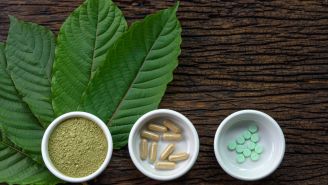Updated on December 21, 2023.
Almost two-thirds of American adults drink coffee each day, according to the National Coffee Association. And if you’re one of the millions who indulge regularly, you might be in luck. Research increasingly suggests that a coffee habit may have health benefits.
Not only is coffee associated with short-term perks like sharper focus and a better mood, but it may also help protect against serious medical conditions over the long term, including heart disease and some cancers. It’s even linked to a lower risk of all-cause mortality, or the odds of dying from any disease during a certain period of time.
What’s in coffee that might boost well-being? How exactly could a java habit benefit your health? And what can you do to optimize its possible positive effects? Here’s what you should know about coffee’s potential.
Your coffee’s chemical makeup, explained
Coffee includes over a thousand chemicals, any of which may affect your health. But there’s one in particular that has gotten tremendous attention: “Caffeine is the one that we know the most about,” says Miriam Zylberglait Lisigurski, MD, an internal medicine and geriatrics physician in Fort Lauderdale, Florida.
Caffeine stimulates your nervous system and influences the function of several others, including your cardiovascular, endocrine, and digestive systems. A typical 8-ounce serving of black, brewed coffee contains about 100 milligrams (mg) of caffeine, though this amount can vary from cup to cup depending on preparation. A similar serving of decaffeinated coffee can have up to 15 mg.
Since an excess of caffeine may have negative effects, experts often advise limiting yourself to a few cups of coffee per day. The U.S. Food and Drug Administration says 400 mg of caffeine, the amount found in four or five cups, is generally safe for most people.
Coffee is more than just a caffeine delivery system. It also contains very small amounts of nutrients like potassium, riboflavin, and magnesium, and it is a good source of antioxidants. These powerful compounds help counteract inflammation, safeguard your cells from harm, and potentially prevent disease. Polyphenols, for example, are plant-based antioxidants in coffee that are believed to help protect against cancer, among other illnesses.
The potential perks of java
Our understanding about coffee’s health effects could change as new research emerges. In the meantime, experts believe both its short- and long-term benefits may be plentiful.
In the immediate term, coffee consumption is linked to increases in happiness, alertness, focus, and energy. Studies suggest it can boost athletic performance for a wide range of activities, from team sports to high-intensity workouts. Coffee stimulates muscles in the digestive system related to bowel movements, as well, and may alleviate headache pain (though it can cause it in some situations, too).
In the long run, researchers have found that coffee’s potential health advantages are dose-dependent, meaning they hinge on how much java you regularly drink. Though the “ideal” amount varies by study and condition, habitual consumption is thought to affect the following illnesses in some way:
Cancer: In 1991, the World Health Organization (WHO) called coffee a possible carcinogen. But in 2016, after reviewing abundant new evidence, the organization announced that there was no conclusive evidence for that designation, and coffee should not be considered a cancer-causing agent.
In fact, coffee may actually help protect you from certain cancers. Some studies link consistent intake to lower chances of liver, colorectal, head and neck, breast, and endometrial cancers.
Diabetes: Both caffeinated and decaffeinated coffee consumption are tied to a decreased risk of type 2 diabetes. The exact reason is unknown, but some experts think that certain compounds within coffee—perhaps polyphenols—could enhance insulin sensitivity and the metabolism of glucose.
For people who have already been diagnosed with type 2 diabetes, coffee may influence insulin sensitivity, which could affect blood sugar. To better understand how coffee might affect your diabetes, monitor your levels after drinking a cup.
Heart disease: Moderate daily coffee intake has been associated with reduced chances of developing and dying from heart disease. For example, compared to non-drinkers, people who drank two to three cups of ground coffee each day experienced a 20 percent lower risk of cardiovascular disease, according to a 2022 study published in European Journal of Preventive Cardiology. Decaffeinated and instant coffee were linked to a smaller but still-significant benefit.
There’s recent evidence coffee can protect people with type 2 diabetes from heart disease, too. And other research suggests that coffee consumption—caffeinated or decaf—may lower stroke incidence.
Depression: Coffee can worsen anxiety and insomnia, which can in turn influence depressive symptoms. But multiple studies have connected moderate coffee use to lower odds of developing depression when compared to low use or abstention. For example, in a 2018 study published in Nutrients of over 14,000 adults in Spain, people were much less likely to be depressed if they drank four or more cups a day versus less than a cup. One proposed explanation: Antioxidants in the drink may alleviate inflammation, which is thought to contribute to depression.
Death: In many observational studies, drinking moderate amounts of coffee—often between two and five cups daily—correlates with a lower risk of death. This could be partly due to the compounds within coffee, or because compared to non-drinkers, habitual coffee users are likelier to be healthier already.
In addition to these conditions, coffee consumption may also help safeguard against Parkinson’s disease, cirrhosis, gout, and gallstones, not to mention non-alcoholic fatty liver disease. The jury is still out as to coffee’s relationship to Alzheimer’s disease, however. Though some studies suggest caffeine may have a protective effect, others raise questions about the connection.
Worth noting: The bulk of research into coffee’s health effects is observational in nature. That means that although coffee may be associated with certain health benefits, it isn’t necessarily the direct cause of those benefits. It could be that some other factor or factors play a role in both health and coffee drinking.
Tips to optimize your intake
To reap the potential health gains of coffee, it helps to keep a few things in mind.
First, beware of overdoing it. Among other issues, drinking too much java is linked to jitters, irritability, anxiety, insomnia, and urge incontinence (a sudden need to urinate followed by a loss of bladder control). People with certain health conditions may have additional problems, as well.
Individual reaction to the caffeine in coffee differs from person to person, says Dr. Zylberglait, and depends on an array of factors, such as your weight, sex, and genetics. Be aware of how your body responds to coffee and report unusual symptoms or reactions to your healthcare provider.
Second, know that how you prepare coffee may affect its health benefits, and filtering it may be better. Drinking boiled coffee, such as French press or Turkish style, exposes you to a group of chemicals called diterpenes that can worsen your cholesterol. Using a paper filter nearly eliminates diterpenes and may be a healthier way to go.
Third, when you pour your morning (or mid-morning or afternoon) brew, go easy on sugar, higher-fat dairy, non-dairy creamers, and other rich flavorings. Those can add fat and calories and may wind up canceling out coffee’s health benefits. If you can’t stand black coffee and need to dress it up, use less sugar—or a lower-calorie substitute—along with skim, unsweetened almond, or unsweetened soy milk. Save tricked-out seasonal lattes and blended drinks for special occasions.
Finally, understand that coffee is not a cure-all. Simply drinking it won’t prevent disease or offset other unhealthy habits. “It’s not that if you smoke and you drink coffee, you will not have cancer,” says Zylberglait.
Instead, consider coffee as part of an overall healthy lifestyle—one in which you eat a nutritious diet, get enough sleep and physical activity, avoid stressors, and of course, don’t smoke.







